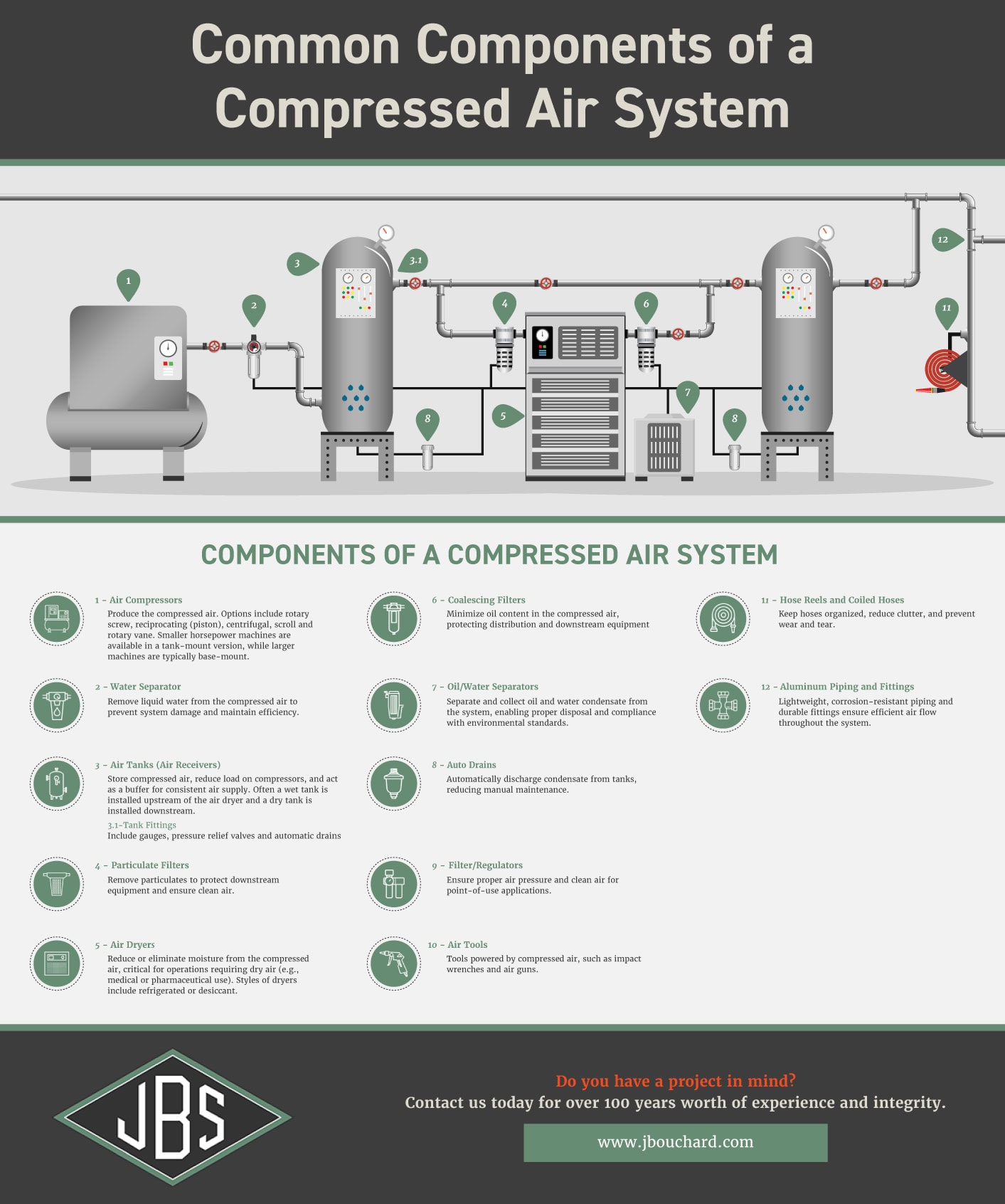Seasonal Effects on Air Compressors
Understanding how seasonal changes impact industrial air compressors is crucial for maintaining efficiency and prolonging the life of your equipment. Here, we’re examining the effects of summer heat, cold weather, and moderate temperatures on air compressors and offering insights and solutions to optimize performance throughout the year.
Summer Heat
Due to increased temperatures and humidity, summer brings unique challenges to industrial air compressor systems. Here’s how these factors affect your equipment and what you can do to mitigate the impact.
Increased Water Output
The rise in temperatures translates to more water vapor in the air, necessitating enhanced drainage systems to handle the increased water output. This additional moisture can lead to water accumulating in the compressor tank and air lines, which, if not properly drained, can corrode and become less efficient. Implementing automatic drain valves can mitigate these risks by consistently removing condensate without manual intervention.
Lower Flow Rates
Hotter air is less dense, leading to reduced airflow through the system’s intake, which can diminish overall efficiency. Consequently, the compressor must work harder to achieve the same output, potentially increasing energy consumption and operational costs. Remove any obstructions to maximize air intake, and schedule regular maintenance to ensure your compressor is not wearing down faster than normal.
How to Beat the Heat
High ambient temperatures and increased heat generation from the compressor itself can compromise the system’s performance. Here are some strategies to combat the summer heat:
- Improve Ventilation: Your compressor room should have adequate crossflow ventilation to keep temperatures in check.
- Maintain Air Compressor Coolers: Regular maintenance of cooling systems is essential to dissipate excess heat effectively.
- Monitor Discharge Temperatures: Keep discharge temperatures below 225 °F to prevent damage to lubricants, insulation, and electrical components.
Cold Weather
Winter conditions come with their own set of challenges for air compressors. The following are several of the most common problems.
Frozen Condensate
When condensate freezes, it may clog or crack vital components, leading to costly repairs or replacements. Ice in drain valves, control lines, heat exchangers, and filters can obstruct airflow and exert undue pressure on pipes and reservoirs, risking structural integrity.
Thicker Compressor Oil
Cold temperatures thicken the oil, reducing its lubrication ability. This increased viscosity demands more energy for the compressor to operate, straining the motor and potentially shortening its lifespan.
Air Dryer Challenges
As refrigerated air dryers draw moisture from the compressed air, the water can freeze inside the dryer piping and damage the drying system, causing severe pressure drop or, in the worst cases, stopping air flow completely.
How to Beat the Cold
Adapting to these winter challenges requires proactive measures, such as:
- Insulating pipes
- Installing heaters
- Installing heat recovery dampers
- Regularly checking for signs of moisture accumulation
By keeping these factors in check, your air compressor can run smoothly throughout the cold season.
Moderate Temperatures
Moderate temperatures offer the ideal operating conditions for air compressors, leading to efficient performance, reduced stress on components, and lower energy consumption. However, regular maintenance and monitoring are still essential for full functionality. Key considerations include:
- Performing Regular Maintenance: Strictly adhere to the compressor manufacturer’s recommended maintenance schedule, even in moderate temperature conditions.
- Monitoring Key Parameters: Monitor pressure, temperature, and oil levels to catch any issues early. This proactive approach allows for timely interventions, preventing minor issues from escalating into major problems that could halt operations and incur significant costs.
- Seasonal Adjustments: Make slight adjustments to condensate trap drainage frequency based on humidity changes. As seasons change, so does the air’s moisture content, affecting how often condensate needs to be removed. Adjusting the drainage frequency accordingly helps your system remain efficient and reduces the risk of moisture-related damage. This issue can be avoided by installing automatic or float drains.
Air Compressors From John Bouchard & Sons Co.
Seasonal changes significantly impact air compressor performance. By understanding these effects and implementing the above strategies, you can help your equipment operate efficiently year-round. For professional advice, industry-leading air compressors, or maintenance services, contact John Bouchard & Sons Co. Our expertise in industrial air compressors will help you navigate the challenges of any season so that your operations remain uninterrupted and productive.


